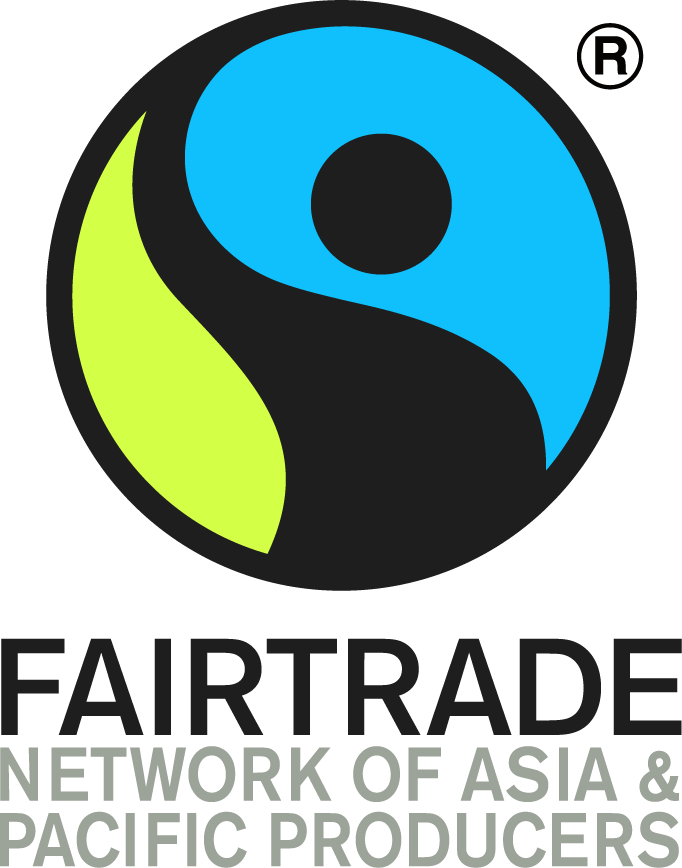Herbs, Herbal teas and spices
Fairtrade herbs and spices from Iran (Islamic Republic of), India, Sri Lanka, Indonesia, Thailand, and Vietnam offer an array of rich, exotic flavors while empowering small-scale farmers. Each pinch of spice or herb tells a story of sustainable farming, fairtrade, and community development.


The Asia-Pacific region is a thriving hub for the production of herbs, herbal teas, and spices, contributing significantly to global supply. Known for its diverse climate and rich agricultural traditions, the region produces approximately 65-70% of the world's spices and a significant share of medicinal herbs and herbal teas. In 2022, the region exported over $35 billion worth of herbs, teas, and spices, with leading producers including India, Sri Lanka, Vietnam, Indonesia, and China.
India alone contributes about 45-50% of global spice production, with staple exports like turmeric, ginger, cumin, and cardamom followed by Vietnam with 30% of the supply for pepper production.
In 2022, approximately 25% of the region's herbs, teas, and spices were certified organic or sustainably produced. This growing focus on sustainability not only supports environmental goals but also boosts the region's export potential, with sustainably certified products accounting for 15-20% of the total exports. As consumer interest in organic and fair-trade products increases, Asia-Pacific is cementing its position as a global hub for sustainably produced herbs, spices, and herbal teas.
FLAVOURS THAT EMPOWER FARMERS
Overview of Herbs, Herbal teas and Spice Producers


Current challenges
- Apart from the issue of low prices, there are other issues at play in the herb and spice sector.
- Price fluctuation. More extreme weather patterns and political instability can drive price volatility, which means smallholder farmers and plantation workers can struggle to earn enough from their crops.
- Lack of connectivity. Many producers work in remote areas, with poor transport and telecommunications links. This pushes up production costs, interferes with their market access and market information and forces them to rely on a small pool of traders.


WHY CHOOSE FAIRTRADE HERBS, HERBAL TEA AND SPICES?
If we want to enjoy a future where chocolate isn’t just a rare luxury, the cocoa business needs to change.
- Fairtrade Minimum Price. For a number of Fairtrade herbs and spices, such as vanilla and rooibos, there is a Fairtrade Minimum Price. This aims to cover the cost of sustainable production, and acts as a security net when market prices fall.
- The Fairtrade Premium is paid on top of the selling price. Farmers decide together how to spend the Premium. Popular investments include healthcare, community projects and assets for farmers’ businesses.
- Stability. Other benefits of Fairtrade include support on health and safety, and access to credit ahead of harvesting.
Please note: Among the many spices and herbs, there are some which don't have a Fairtrade Minimum Price. Traders that purchase these products on Fairtrade terms must pay producers a Premium of 15 percent on top of the commercial sales price.
Our Fairtrade Herbs and Spices Product Range
Explore our variety of ethically sourced herbs and spices, grown by Fairtrade farmers in Iran, India, Sri Lanka, Indonesia, Thailand, and Vietnam:
- Ajowan (Trachyspermum ammi)
- Almond flower (Prunus dulcis var. dulcis)
- Basil (Ocimum basilicum, O. gratissimum)
- Black caraway / black onion seeds (Nigella sativa)
- Black Pepper (Piper nigrum)
- Blackberry leaf (Rubus fruticosus)
- Blackcurrant leaf (Ribes nigrum)
- Camomile (Matricaria recutita, Anthemis nobilis)
- Caper (Capparis spinosa)
- Caraway (Carum carvi)
- Centalla (Centella asiatica)
- Celery leaves (Apium graveolens)
- Celery seed (Apium graveolens)
- Chili pepper (Capsicum species)
- Chives (Allium schoenoprasum, A. odoratum)
- Cinnamon (Cinnamomum zeylanicum, C. cassia)
- Citronella grass (Cymbopogon winterianus, C. nardus)
- Clove (Syzygium aromaticum)
- Coconut palm sugar/nectar (Cocos nucifera)
- Coriander (Coriandrum sativum)
- Coriander leaves (Coriandrum sativum)
- Coriander seed (Coriandrum sativum)
- Cumin (Cuminum cyminum)
- Curry leaves/ Sweet Neem leaves (Murraya koenigii)
- Dill (Anethum graveolens)
- Fennel (Foeniculum vulgare)
- Fenugreek (Trigonella foenum-graecum)
- Garlic
- Garlic chive (Allium tuberosum, A. ramosum)
- Ginger (Zingiber officinale)
- Great bougainvillea leaf (Bougainvillea spectabilis)
- Hibiscus (Hibiscus sabdariffa)
- Iramusu Indian Sarasaparilla (Hemidesmus indicus)
- Indian ginseng (Withania somnifera)
- Ivy gourd (Coccinia indica)
- Jasmine (Jasminum species)
- Kaffir / Makrut lime leaves (Citrus hysterix)
- Lemongrass (Cympobogon citratus, C. flexuosus)
- Long Pepper (Piper longum, P. retrofractum, P. officinarum)
- Mace (Myristica fragrans)
- Madagascar periwinkle (Catharanthus roseus)
- Marigold flowers (Calendula officinalis)
- Mint (Mentha species)
- Moringa leaf (Moringa oleifera)
- Mustard seed (Sinapis and Brassica species)
- Nutmeg (Myristica fragrans)
- Red spiderling (Boerhavia diffusa)
- Rosehip (Rosa species)
- Saffron (Crocus sativus)
- Sesame Seed
- Stonebreaker (Phyllanthus niruri)
- Turmeric (Curcuma species)
- Turmeric (Curcuma species), Fresh
- Vanilla (Vanilla mexicana, V. fragrans, V. planifolia)
- Veldt grape (Cissus quadrangularis)
- Water hyssop (Bacopa monnieri)
- White Pepper (Piper nigrum)
- Wild strawberry leaf (Fragaria vesca)
- Walnut
- Walnut leaf (Juglans regia)
Support Farmers. Choose Fairtrade Herbs, Herbal tea and Spices!
By choosing Fairtrade-certified herbs and spices, you are supporting small-scale farmers who prioritize sustainability and ethical practices. Your purchase helps protect the environment and empowers communities.
For more information write to us at comms@fairtradenapp.org
